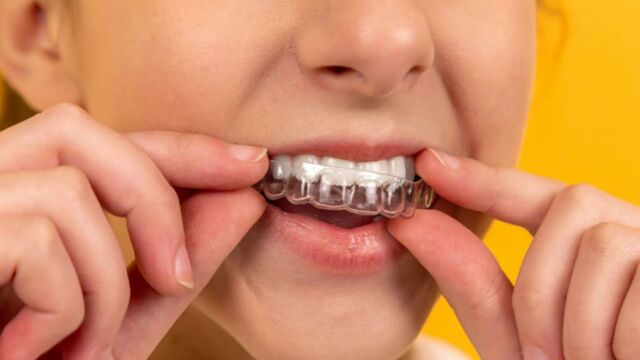Most people grind or clench their teeth from time to time and it doesn’t cause much harm, however, regular teeth grinding during sleep can cause damage and other serious complications.Teeth grinding, medically called bruxism, doesn't have a specific reason behind it.
Discover our latest podcast
What causes teeth grinding?
According to WebMD, it can happen for several reasons. As such, teeth grinding is often linked to:
- Stress and anxiety – this is the most common cause of teeth grinding
- Sleep disorders like snoring, obstructive sleep apnoea (OSA) and sleep paralysis
- Side effects of certain medicines including some anti-depressant
- Smoking, excessively drinking alcohol or intaking caffeine and taking drugs like ecstasy and cocaine
According to the Sleep Foundation, people who suffer from sleep bruxism do not grind their teeth at night. Instead, they suffer clenching and grinding episodes. People can have as little as a few episodes per night or as many as 100.Teeth grinding episodes aren't always consistent, and they don't always happen at night. Here’s why you should see a doctor:
Tooth damage
One of the most significant concerns of teeth grinding in sleep is tooth damage. They can become eroded, painful or mobile along with hampering your dental crowns, fillings or implants.
Joint problems
Grinding teeth at night can increase the risk of problems with the joint that connects your jaw to your skull. This is also known as the temporomandibular joint (TMJ). TMJ problems can further cause difficulty in chewing food, chronic jaw pain, clicking noises and locking the jaw.
Trouble for the bed partner
Teeth grinding can not only be troublesome for you but also for the person who sleeps next to you. The noise from clenching and grinding can be bothersome and make it challenging for the person next to you to fall asleep.
Read More
⋙ Dental hygiene: How long should you be brushing your teeth?
⋙ 5 home remedies to get rid of tartar build-up on your teeth















